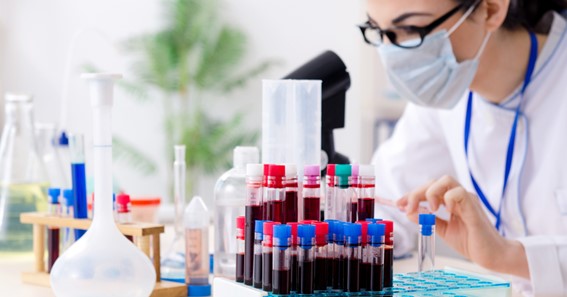A hematologist is a qualified doctor who specializes in treating blood disorders and lymphatic system disorders. If your primary care physician notices any blood abnormalities, they might advise seeing a hematologist. Otherwise, if you experience symptoms that might point to a blood issue, you might go see a hematologist on your own. This article gives a detailed overview of the numerous blood problems that a hematologist can assist in treating.
Blood Diseases That Can Be Treated By A Hematologist
A variety of blood diseases, such as anemia, hemophilia, deep vein thrombosis, lymphoma, leukemia, and sepsis, can be treated by hematologists. The following provides a thorough overview of each blood issue, its signs and symptoms, and possible treatments suggested by the best hematology hospital in India.
Click here – How to Plan a Productive Work Trip to Seattle
Anemia
When the body’s supply of red blood cells is insufficient, anemia, a common blood disorder, develops. It might lead to a reduced supply of oxygen to the body, producing symptoms including pale skin, fatigue, dizziness, and shortness of breath. Anemia comes in more than 400 different forms. There are six basic forms of anemia:
- Anemia due to iron deficiency
- Anemia due to a vitamin shortage
- Sickle cell anemia
- Anemia hemolytic
- Aplastic anemia
- Inflation anemia
A hematologist may proceed by doing a number of tests to identify the cause of the patient’s body producing insufficient red blood cells. The recommended course of treatment will depend on whatever the underlying problem is.
Iron supplements are used to correct iron deficiency, and vitamin B supplements are typical anemia therapies (for low vitamin levels). The hematologist may suggest a blood transfusion or medicine stimulate the production of extra blood.
Deep vein thrombosis
A blood clot (or several blood clots) developing inside the leg veins is known as deep vein thrombosis. Because it may result in blood clots in the lungs, this condition is dangerous. Deep vein thrombosis-related blood clots usually resolve on their own; however, they are occasionally associated with symptoms. Leg soreness, leg swelling, heated skin, and tenderness are typical symptoms.
If deep vein thrombosis has been identified or the patient has reason to believe it may exist, especially if symptoms are present, the patient should see a hematologist. In the long run, a hematologist may suggest particular equipment, like intermittent pneumatic compression devices, to cure deep vein thrombosis. Anticoagulants are one type of medication that may be used.
Hemophilia
A disorder called hemophilia prevents the clotting of blood normally. It may result in extensive bleeding from minor wounds. Hemophilia is a condition that causes frequent nosebleeds (without a clear cause), excessive bleeding from tiny cuts and scrapes, severe bruising from minor traumas, joint pain, and increased irritability in young children.
After evaluating the patient’s family and medical histories, performing several blood tests, and making a diagnosis, hematologists can usually determine if the patient has hemophilia. To stop excessive bleeding, clotting promoter medicines are commonly used as treatment.
Leukemia
Blood cells can develop leukemia, a particular type of cancer. It is typically brought on by a rise in the body’s white blood cells. Leukemia can be classified into three main categories: acute lymphoblastic, acute myeloid, and chronic lymphocytic. Early on, many people may not exhibit symptoms, particularly those with leukemia which grows slowly. Chemotherapy, medical procedures such as hematopoietic stem cell transplantation, and blood transfusions are commonly suggested treatments.
Lymphoma
White blood cell development that is too rapid results in lymphoma, often known as lymphatic cancer (known as lymphocytes). In addition to a number of other potential symptoms, lymphoma can present with fever, swollen lymph nodes, weight loss, tiredness, and abdominal swelling. Every patient has a tailored treatment plan that is specific to them and may combine therapy, medication, and surgery.
In Conclusion
You should see a hematologist if your healthcare physician has recommended it or if you are having issues that might point to a blood-related condition. To determine whether you have an allergy, blood tests and treatments are also done at the best allergy hospital. The symptoms you are experiencing are likely related to a blood condition, and skilled specialists can help you identify them.
Click here – Comprehensive Guide to Lightsaber Types
